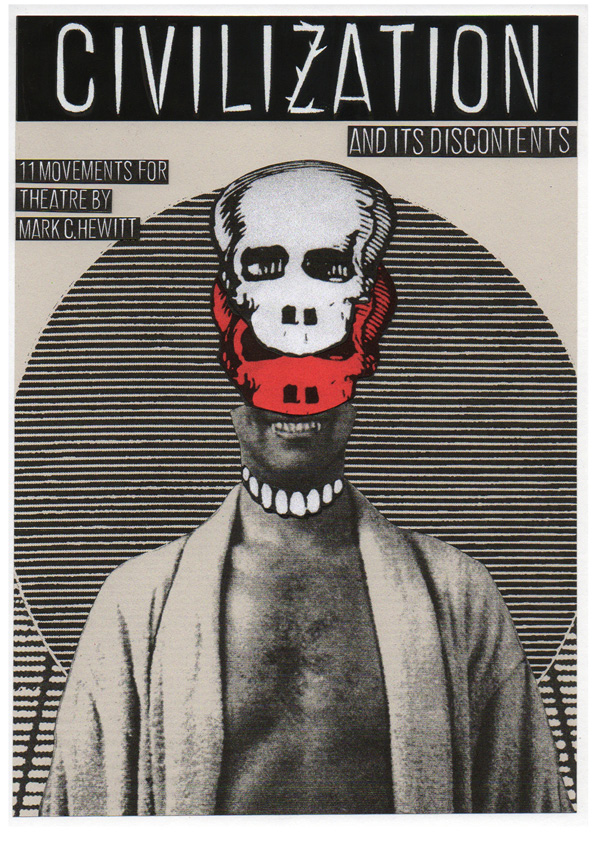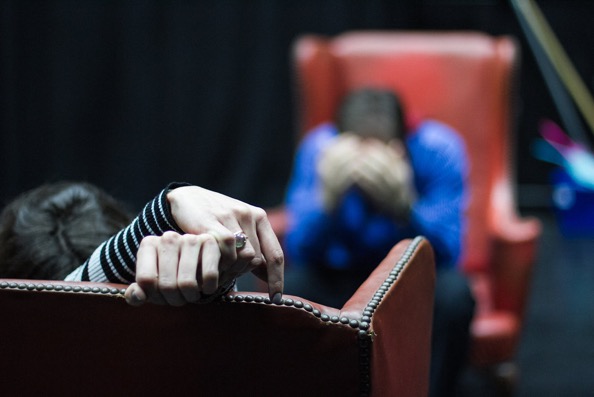Blank Productions - work in development
Text by Mark C. Hewitt
Music by Thomas Strønen

Poster art © Andrzej Klimowski, 2017
CIVILIZATION AND ITS DISCONTENTS: 11 MOVEMENTS FOR THEATRE
1: Prologue
2: ‘Against the dreaded external world one can only defend oneself by some kind of turning away’
3: 'The irresistibility of perverse impulses and perhaps the charm of forbidden things generally’
4: ‘One might say that the intention that man should be happy is not included in the plan of Creation’
5: ‘It’s worth noting that the genitals themselves, the sight of which is always exciting, are rarely regarded as beautiful’
6: ‘We now observe that the useless thing we expect civilization to value is beauty’
7: ‘Unbridled gratification of every desire presents itself as the most alluring guiding principle in life, but it means putting enjoyment before caution and soon brings its own punishment’
8: 'It is in sadism, where the death instinct bends the erotic aim to its own will, while at the same time gratifying sexual craving, that we obtain the clearest insight into its nature’
9: Songs of the Chambermaids (‘The boundaries of the ego are not constant’ / ‘The non-satisfaction of powerful instincts’ / ‘Men are not gentle creatures’ / ‘The fatal inevitability of the sense of guilt’)
10: ‘And now I think the meaning of the evolution of civilization is no longer obscure to us’
11: Epilogue
Early development »
Images from early phases of R&D »

R&D photo (2014) by Nivine F. Keating
✵ 'You see ... all art has now become completely a game by which man distracts himself, and you may say it’s always been like that, but now it’s entirely a game.’
Francis Bacon ('Interviews with Francis Bacon 1962-1979’ by David Sylvester)
✵ 'War's necessity is terrible, altogether different in kind from the necessity of peace. So terrible it is that the human spirit will not submit to it so long as it can possibly escape; and wherever it can escape it finds refuge in long days empty of necessity, days of play, of revelry, days arbitrary and unreal.'
Simon Weil (from the essay 'The Iliad, or the Poem of Force', 1939, translated by Mary McCarthy)
✵ 'Against the dreaded external world one can defend oneself only by somehow turning away from it ...'
Sigmund Freud ('Das Unbehagen in der Kultur' (The Uneasiness in Culture) 1930, translated into the English as 'Civilization & its Discontents’ at the suggestion of Joan Rivière
✵ '… people expelled from life and time. Their past is cancelled, their future empty. They have no gods at all. They seem caught in an inertia where significant action, should it occur, has to be motivated by ghosts. There is nowhere in these characters to dig for a profound reversal or a revelatory recognition.'
Anne Carson (from introductory essay to her translation of Euripides’ ‘Hekabe’, from the book, Grief Lessons, 2006)